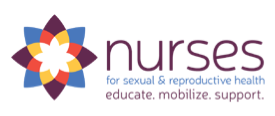This webinar is part of our Transformative Nursing: Deconstructing Punitive Healthcare education series. In this webinar we learn about the multitude of ways overturning Roe v Wade is impacting pregnancy outcomes, nursing practice, and patient well-being.
This session is part of our Transformative Nursing: Deconstructing Punitive Healthcare education series. This webinar describes the dynamics and practices that drive criminalization in healthcare, the impact of those practices on patients, families, and healthcare workers, and a practical set of strategies that individuals and teams can use to understand, respond to, and change these dynamics in their individual practice, their teams and health systems more broadly.
This webinar discusses the driving force behind mass incarceration in the United States, access to reproductive healthcare while incarcerated, and look at the challenges people face after finishing their sentences.
A shared google folder containing a webinar titiled "Prison Abolition is Reproductive Justice" and other related resources.
A TED Talk given by Carolyn Sufrin-- a obstetrician-gynecologist and a medical anthropologist who provides Ob/Gyn care to vulnerable populations of women, including women in jail. Her research focuses on the complex intersection of health rights and the politics of reproduction as they play out in institutions of incarceration.
The Beyond Do No Harm Network is a group of US-based health care providers, public health workers, impacted community members, advocates, and organizers movements to address the harm caused when health providers and institutions and public health researchers and institutions facilitate, participate in and support criminalization.
An infographic that explores the impacts of incarceration on trans, nonbinary, and gender expansive individuals.
A grassroots organization that works to end the arrest, detention, and incarceration of children and young adults by promoting restorative and transformative justice practices.
Movement for Family Power works to end the Foster System’s policing and punishment of families and to create a world where the dignity and integrity of all families is valued and supported.
Resources curated by AARWIP which includes reports, readings, films, and other resources that relate to women and mass incarceration, reproductive health care, reproductive justice, and the broad reach of the carceral system in U.S. society.
An educational tool for frontline workers to engage with abolitionist practices in healthcare.
An article by the American Academy of Family Physicians that discusses care recommendations for incarcerated patients.
Principles from Interupting Criminalization to help inform organizing interventions, tactics, and strategies towards dismantling policing in healthcare.
This toolkit provides guidance to ED providers on the laws and legal consequences related to their interactions with police. This information will equip providers and other healthcare workers to safeguard their patients’ rights, comply with privacy laws, and navigate law enforcement interactions in a way that protects patients.
This report exposes the catastrophic health harms of incarceration in women’s prisons and provides evidence in support of investments in health-promoting social determinants of health instead of incarceration.
This report explores the challenges the criminal system imposes on individuals, families, and communities in meeting basic needs, building economic stability, maintaining relationships, and sustaining health and well-being, both before and after sentencing.
A resource from Interupting Criminalization that examines the prevelance of police sexual violence and pathways forward.
An essay that explores prisons as sites of reproductive injustice by focusing on barriers to abortion and safe childbirth.
This issue brief details the laws and challenges that impinge upon the reproductive health and freedom of incarcerated individuals. Some issues discussed include forced sterilization, abortion, and shackling of pregnant people.
This brief offers an analysis of how the movements to end police violence and criminalization are connected to abortion criminalization and how to push back against a widening web of criminalization.
The profession of nursing has its own history of racism and of alliance with systems of state control with which to contend. In this article,the authors argue nursing must adopt an ethics of abolitionism to realize its goals for health and justice.
